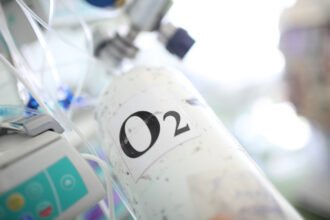 First published on MedCityNews.com. If cancer treatment were cheaper and easier to administer, it would be more accessible to early-stage cancer patients across the world. That’s the reasoning behind a disposable, electronic chemotherapy patch designed by a bright group of undergrads at Harvard.
First published on MedCityNews.com. If cancer treatment were cheaper and easier to administer, it would be more accessible to early-stage cancer patients across the world. That’s the reasoning behind a disposable, electronic chemotherapy patch designed by a bright group of undergrads at Harvard.
 First published on MedCityNews.com. If cancer treatment were cheaper and easier to administer, it would be more accessible to early-stage cancer patients across the world. That’s the reasoning behind a disposable, electronic chemotherapy patch designed by a bright group of undergrads at Harvard.
First published on MedCityNews.com. If cancer treatment were cheaper and easier to administer, it would be more accessible to early-stage cancer patients across the world. That’s the reasoning behind a disposable, electronic chemotherapy patch designed by a bright group of undergrads at Harvard.
The students, under the company name Theratech, just won a $20,000 cash prize from the Create the Future design contest sponsored by COMSOL, Tech Briefs Media Group and SAE International.
At the core of their ChemoPatch is a plastic-based micropump that they say could automatically deliver up to three different chemotherapy drugs in select doses at specific time intervals.
Here’s how the team describes the four components of the patch in their submission:
1) a novel, patent-pending micropump for drug delivery
2) a drug reservoir that contains up to 3 separate chemotherapy drugs
3) a microneedle array for the painless administration of drugs
4) a simple microcontroller-based electronic circuit for complex programmable delivery scheduling
The current process for chemotherapy – delivered on a complex schedule from a pole-based IV pump – is part of what keeps it from being widely accessible for early-stage cancers, the team says. An automated, portable patch device could make it deliverable outside of the hospital setting.
Theratech says it’s planning to pilot the device, which has a production cost of $35 per unit, in early-stage breast cancer patients in India next year.
[Image credit: Theratech/Tech Briefs]







